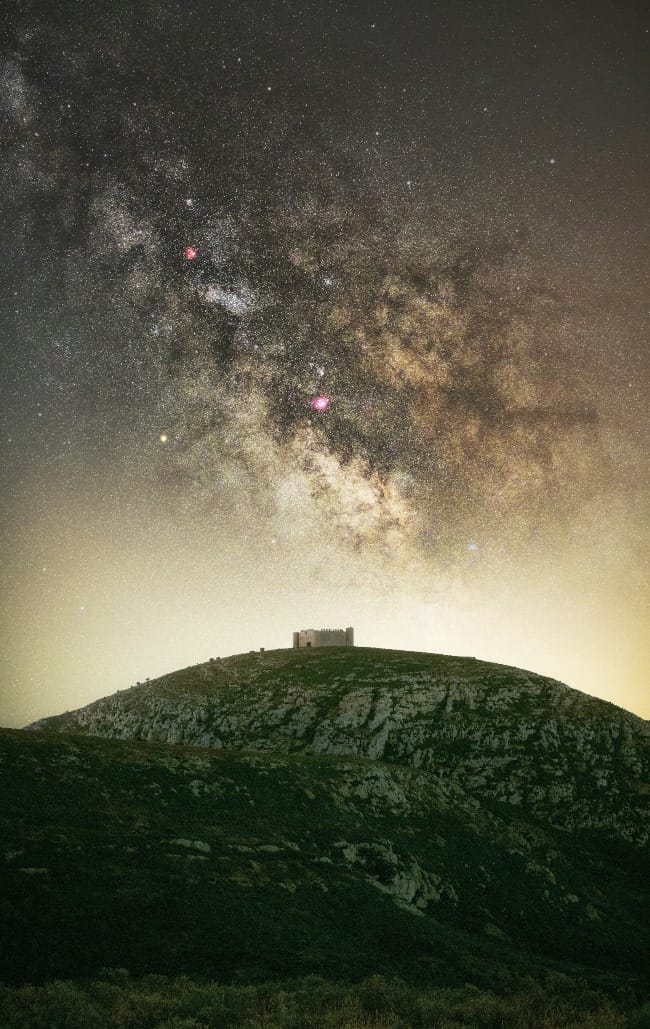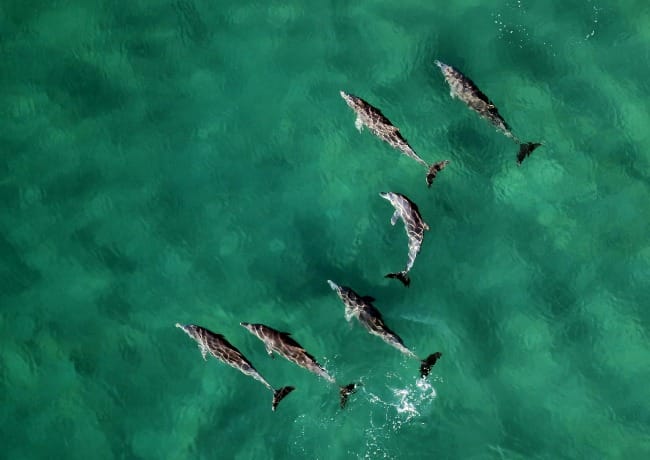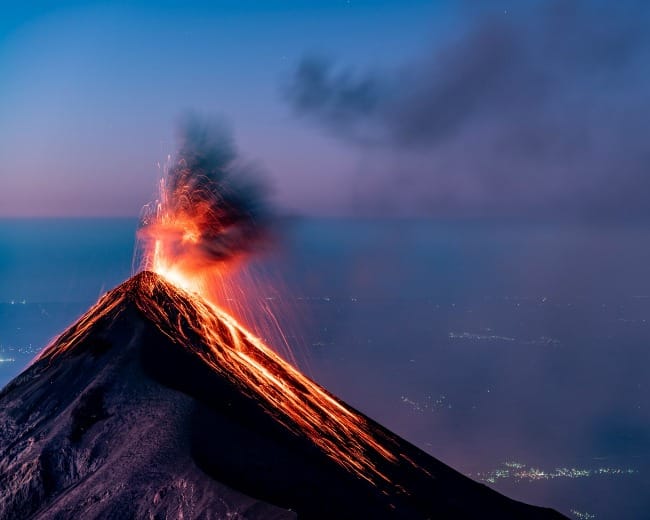As you read the psalm below, written by Nicaraguan priest, poet, and politician Ernesto Cardenal, pause when you reach the statement, whose particular and unique features/are the context of his glory and his fecundity, and reflect on that thought.
As you resume reading, consider the way in which each thing named is a context for God's glory and how you can see that those parts of creation are of God’s mind in their particulars. Take your time to trace the truth of these statements in your heart and mind as you read through the rest of the words.
Praise the Lord in Psalms

Praise the Lord in your infinite variety all creatures,
minute and enormous in your verity
whose particular and unique features
are the context of his glory and his fecundity
Praise the Lord nebulae like grains of dust
silhouetted and fixed on photographic plates
Sirius, that dog star and his confederates
Arcturus, Antares, Aldebaran, the red bull
God’s cup brimming over and ever full

Praise the Lord you his meteorites and comets
In your elliptical orbits and made planets
Praise the Lord atoms and molecules
Protons and electrons and all the stars
the minute protozoa, in their liquid, the radiolaria

Praise the Lord cetaceans and atomic submarines
for you are of God’s mind in your particulars
Birds, the eagle and wren, the aeroplanes
and prisms in emerald copper sulphate
in the electronic microscope infinite

Coloured flowers blooming at the bottom of the sea,
diatoms and the diadems of the Antilles
Like a rose of diamonds, let all these and
the unended maritime fauna
praise the Lord, and the Tropic of Cancer
storms of the North Atlantic and the Humboldt current,
the dark, sweating forests of the Amazon
the shining island jewels of the South Ocean
volcanoes and lagoons and the Caribbean

behind the silhouettes of the infinite palm
democratic republics, the United Nations
praise the Lord as even for police is appropriate
the students, the young, the beautiful,
His glory surpasses the heavens, it is bountiful
telescope and microscope seeing near and far
It is he who has made the people plentiful
Who would not yield to the Lord the word hosanna?

Praise the Lord in Psalms by Ernesto Cardenal, trans. Thomas Blackburn Crossroads Publishing Company, 1981.
To read these words while sitting in a room insulated from the sights, sounds, and smells of the things named is a different experience from reading the same words when you are outside the walls that buffer our senses from the rest of the world—walls we spend much of our time living behind.
Move yourself to a place beyond the walls that create that buffer and try reading the psalm again, this time while you are sitting or standing outside or where you are near an open window so that the experience of the outside can reach inside even as you are within walls. Read the words again while letting the rest of creation penetrate your senses. Open yourself to the ways in which other parts of creation beyond yourself praise the Lord.
Praise the Lord in your infinite variety all creatures,
minute and enormous in your verity
whose particular and unique features
are the context of his glory and his fecundity
Praise the Lord nebulae like grains of dust
silhouetted and fixed on photographic plates
Sirius, that dog star and his confederates
Arcturus, Antares, Aldebaran, the red bull
God’s cup brimming over and ever full
Praise the Lord you his meteorites and comets
In your elliptical orbits and made planets
Praise the Lord atoms and molecules
Protons and electrons and all the stars
the minute protozoa, in their liquid, the radiolaria
Praise the Lord cetaceans and atomic submarines
for you are of God’s mind in your particulars
Birds, the eagle and wren, the aeroplanes
and prisms in emerald copper sulphate
in the electronic microscope infinite
Coloured flowers blooming at the bottom of the sea,
diatoms and the diadems of the Antilles
Like a rose of diamonds, let all these and
the unended maritime fauna
praise the Lord, and the Tropic of Cancer
storms of the North Atlantic and the Humboldt current,
the dark, sweating forests of the Amazon
the shining island jewels of the South Ocean
volcanoes and lagoons and the Caribbean
behind the silhouettes of the infinite palm
democratic republics, the United Nations
praise the Lord as even for police is appropriate
the students, the young, the beautiful,
His glory surpasses the heavens, it is bountiful
telescope and microscope seeing near and far
It is he who has made the people plentiful
Who would not yield to the Lord the word hosanna?
How did the reading experience change as you read it a second time?
Think about the last phrase of the psalm: Who would not yield to the Lord the word hosanna? As you linger on these words, consider this phrase in relation to the first one explored: whose particular and unique features/are the context of his glory. If God's glory is represented in all of his creation, yielding hosanna to God involves a call to value and protect the variety and abundance of the creation housing God's characteristics and glory—human and non-human, microscopic and telescopic, everything, in fact, which has been made by God.
How can you make your yielding of the word hosanna truer today than it was yesterday? What might it look like when translated from words to action?
Fell free to contact me directly at info@circlewood.online.
Louise
